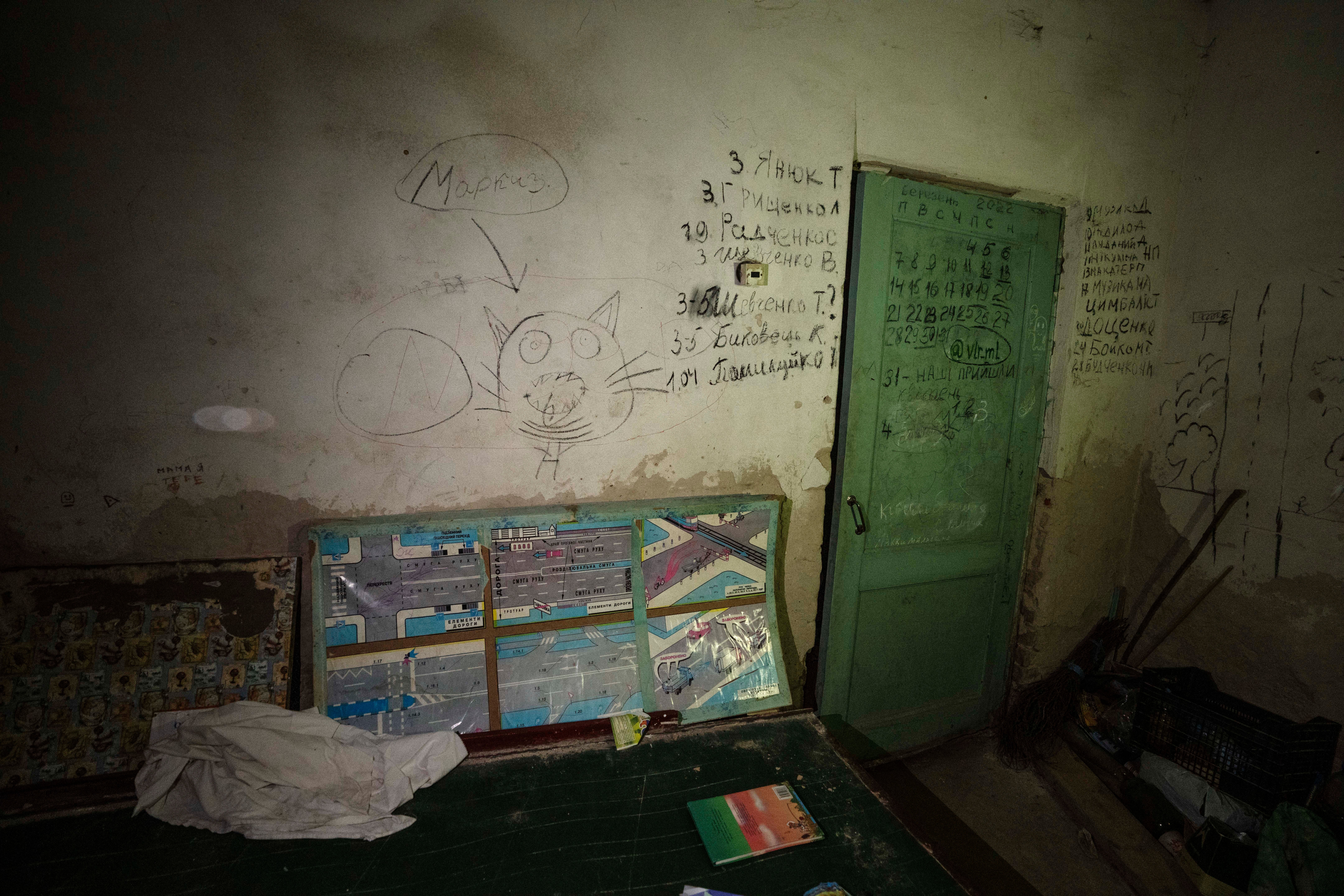UN to monitor Ukraine war for violations against children
The United Nations says it will start monitoring the war in Ukraine and conflicts in Ethiopia, Mozambique and Africa’s central Sahel region for violations against children, including killings, injuries, recruitment, rape and other forms of sexual violence

Your support helps us to tell the story
From reproductive rights to climate change to Big Tech, The Independent is on the ground when the story is developing. Whether it's investigating the financials of Elon Musk's pro-Trump PAC or producing our latest documentary, 'The A Word', which shines a light on the American women fighting for reproductive rights, we know how important it is to parse out the facts from the messaging.
At such a critical moment in US history, we need reporters on the ground. Your donation allows us to keep sending journalists to speak to both sides of the story.
The Independent is trusted by Americans across the entire political spectrum. And unlike many other quality news outlets, we choose not to lock Americans out of our reporting and analysis with paywalls. We believe quality journalism should be available to everyone, paid for by those who can afford it.
Your support makes all the difference.The United Nations announced Monday it will start monitoring the war in Ukraine and conflicts in Ethiopia, Mozambique and Africa’s central Sahel region for violations against children, including killings, injuries, recruitment, rape and other forms of sexual violence.
Secretary-General Antonio Guterres said in his annual report to the Security Council on children and armed conflict that those four new conflicts have been added to 21 conflicts that the U.N. already is monitoring for violations of the rights of children. He said the latter conflicts saw “a high number of grave violations” in 2021.
The U.N. chief said the protection of children was severely affected by escalating conflicts, the multiplication of armed groups, land mines and improvised explosive devices, explosive weapons in populated areas, intensified humanitarian crises, and violations of humanitarian and human rights law.
Virginia Gamba, the U.N. special envoy for children and armed conflict, said at a news conference that “forays of extremely violent armed groups, military coups and instability, and violent electoral processes in fragile states, left 19,100 child victims of grave violations during 2021 in the 21 country and regional situations we monitored.”
The U.N. said it verified nearly 24,000 “grave violations" against children in 2021, including over 1,300 committed previously.
The highest numbers of violations last year were the 2,515 killings and 5,555 injuries tinvolving children, followed by the recruitment and use of 6,310 youngsters in conflicts, the report said.
Last year, it said, the number of child abductions rose by over 20% and cases of sexual violence against children continued to rise, also by over 20%.
The highest number of “grave violations” verified by the U.N. were in Afghanistan, Congo, Israel, the Palestinian territories, Somalia, Syria and Yemen, it said.
While 70% of grave violations were against boys, that number decreased and “the number of girls who were casualties of killing and maiming, or subjected to abduction and sexual violence, increased, particularly in the Lake Chad Basin," the report said.
Guterres said in the report that Ukraine was being added to the monitoring effort “because of the high intensity of this conflict” and in view of the violations against civilians, including children. He asked Gamba to urgently engage with all parties to address the protection of children and prevention of violations against them.
He said Mozambique was being added because of “the gravity and number of violations reported,” including recruitment and use of children, killing and maiming, rape and other forms of sexual violence, attacks on schools and abductions.
The U.N. chief said Ethiopia was being added in view of “the gravity of clashes in 2021” between government forces and police, the Tigray People’s Liberation Front and other parties including militias and regional forces. He cited violence against children including killings, rapes, sexual attacks, abductions and attacks on schools.
Gamba said the central Sahel region covering parts of Burkina Faso, Mali and Niger was being added to the monitoring and reporting list for grave violations against children.
Human Rights Watch and the Watchlist on Children and Armed Conflict, a coalition of non-governmental groups, both criticized Guterres for failing to provide any significant information on violations against children in Ukraine, Ethiopia and Mozambique.
Human Rights Watch’s Jo Becker also criticized the secretary-general for failing to include any perpetrators in the armed conflicts in the three countries on the U.N. blacklist of those committing grave violations against children. The Watchlist’s director, Adrianne Lapar, said Guterres squandered “an opportunity to shed light on abuses and hold parties accountable.”
Both organizations also strongly criticized the U.N. chief for omitting Israel from the “list of shame” for the deaths of 78 Palestinian children and injuries to 982 in 2021.
In the report, Guterres said that if the high numbers of violations by Israel in 2021 are repeated in 2022, it should be added to the list. He also said if a significant increase in the number of cases of violence against Israeli children last year is repeated this year that alestinian armed groups including Hamas’ al-Qassam Brigades and Palestinian Islamic Jihad’s al-Quds Brigades should be listed.
Becker called the failure to list Israel “another missed opportunity for accountability,” saying “other armed forces or groups have been listed for far fewer violations.” Lapar said “year after year Israeli government forces have gotten away with committing serious crimes against children, with virtual impunity” and “the secretary-general needs to hold the Israeli government to the same standard as any other warring party.”
The U.N. sanctions blacklist in the report's annex adds some new armed groups, including the dissident Colombian group the Revolutionary Armed Forces of Colombia-People's Army for recruiting and using children and Burkina Faso’s militant group Jama Nusrat Ul-Islam wa Al-Muslimin for grave violations.